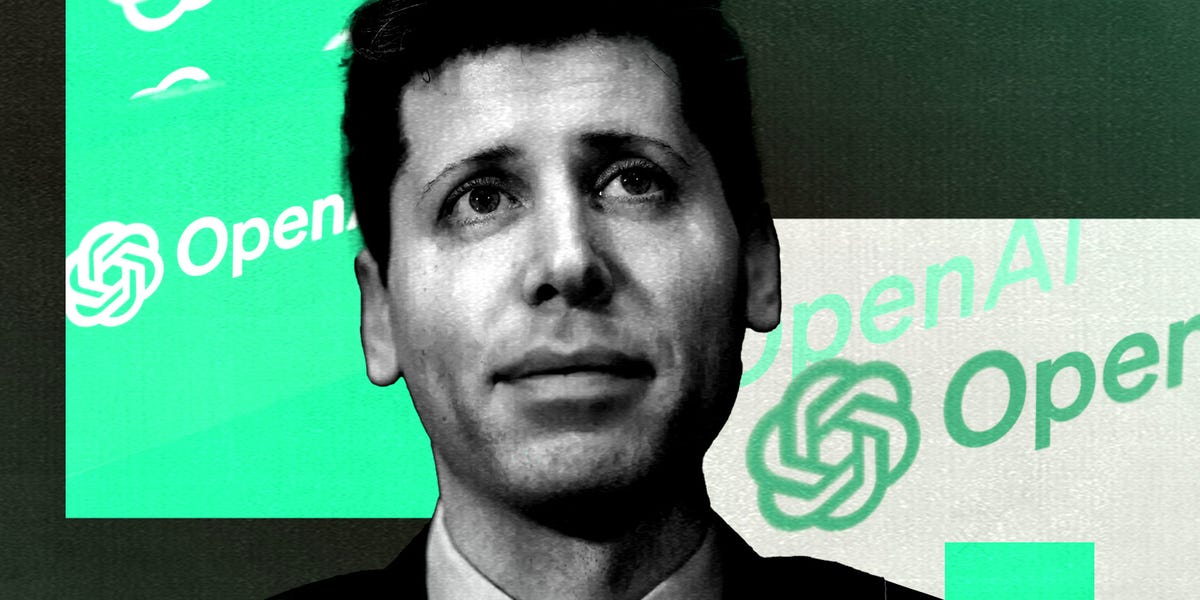- ChatGPT can now interact with PDFs and let you ask questions about them.
- Changes like these could cause startups that build “wrappers” for AI chatbots to be edged out.
- It’s a bleak reminder that swift rule changes by Big Tech firms can wreak havoc on smaller players.
Did OpenAI just kill a bunch of startups by making a small update to ChatGPT? Investors and founders will soon find out.
Sam Altman’s company introduced a new beta feature for ChatGPT subscribers on Sunday, which allows them to upload PDFs. The chatbot analyzes the files and allows users to start asking questions about them.
Anyone who has ever tried scrolling through hundreds of pages of PDFs to pull out useful data and synthesize information will know just how tedious it can be. That makes the update a pretty nifty one for ChatGPT Plus users.
The update also creates a wider problem.
Some startups have built their businesses around ChatGPT’s lack of interactivity with PDFs. Now that ChatGPT can interact with them, what can these other startups offer that ChatGPT can’t?
The simple answer may be a whole lot of nothing.
AI-focused ‘wrapper startups’ face a reckoning
Sahar Mor, product lead at payments giant Stripe, wrote on LinkedIn that “OpenAI just executed a move that will wipe out dozens of AI companies.” Specifically, he referred to “wrapper startups.”
These are essentially startups that “wrap” themselves around an API like ChatGPT, using the core technology underneath the chatbot to offer some sort of service that isn’t available directly from that API.
It isn’t necessarily the case that founders who build AI wrapper businesses are doing this to exploit a weakness in ChatGPT. In March, OpenAI flung the doors open for developers to integrate ChatGPT into their apps and products.
That means startups offering PDF functions aren’t the only wrappers in town. There’s a whole bunch of them out there offering all kinds of uses.
Perhaps the most prominent wrapper to date has been Jasper AI, which went into 2023 with a $1.5 billion valuation, with backing from big VC players such as Coatue and Bessemer Venture Partners.
What did it do to get that lofty valuation? It created an “AI copilot” specific to the needs of enterprise marketing teams by wrapping around OpenAI’s GPT model.
It’s an idea that seems to be struggling, with the company cutting its internal valuation, The Information reported. It also announced layoffs in July.
Startups that offered user interactions with PDFs by wrapping around tools like ChatGPT may wonder if they face a similar fate.
Here’s one example. In May, data scientist Alex Reibman announced ChatOCR, a ChatGPT plugin that “reads text from PDFs, including scans and handwriting.”
Following the ChatGPT update at the weekend, he ran a poll on X that asked users what would happen to his plugin “now that ChatGPT has built in PDF processing.” Out of 210 respondents, 72.4% said they expected the plugin to “see less usage.”
The key takeaway is that without a moat to make them significantly different from competitors, startups risk being plundered.
Investors need to start considering if they’ve placed big bets on the wrong horse.
Read the full article here





